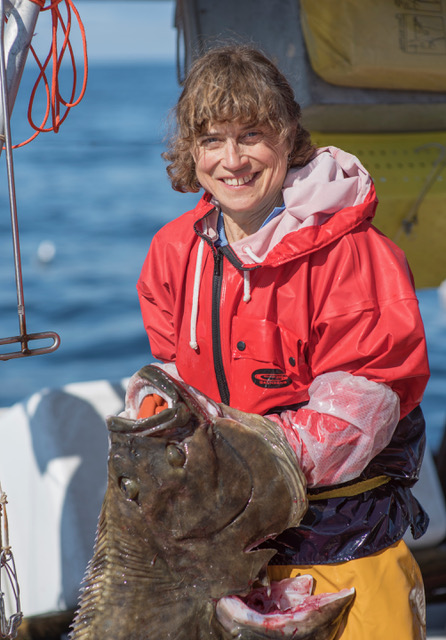
Country: USA
Linda Behnken is the Executive Director of Alaska Longline Fishermen’s Association (ALFA). She has BA from Dartmouth College and a Masters in Environmental Science from Yale University. Linda has been a commercial fisherman in Alaska since 1982, and currently fishes with her spouse and their two sons on their 38-foot boat. She served on the North Pacific Fishery Management Council (NPFMC) from 1992-2001, when she also served as an industry advisor to the North Pacific Anadramous Fish Commission and the National Academy of Science Individual Fishing Quota Review Panel.
Linda helped launch the Alaska Sustainable Fisheries Trust, which invests in fishing access opportunities for community-based fishermen committed to sustainable fishing practices, and Alaskan’s Own, the first Community Supported Fisheries program in Alaska. She served as a U.S. Commissioner to the International Pacific Halibut Commission from 2016-2018 and as a member of Alaska’s Climate Action Leadership Team. In 2009 she was awarded the National Fisherman Highliner award for her work promoting healthy marine ecosystems and strong coastal communities. In 2016 she was recognized as a White House Champion of Change for Sustainable Seafood by President Obama.
Q: What are you currently working on within the context of small-scale fisheries?
The Alaska Longline Fishermen’s Associaon (ALFA) is an alliance of small boat commercial fishermen committed to sustainable fisheries and thriving coastal communities. Alaska Sustainable Fisheries Trust (ASFT) is a non-profit dedicated to strengthening fishing communities and marine resources through research, education and economic opportunity. ASFT and ALFA collaborate to secure a successful future for Alaska’s coastal fisheries, fishing families, and the spectacular resources that support them. This partnership focuses on a) Developing policy that sustains fisheries and fishing communities; b) Engaging stakeholders in resource stewardship; c) Forging long-term revenue streams to support biodiversity and ecosystem health; d) Designing financing tools to secure continued fishing access for young fishermen and other residents; and e) Building community through outreach to fishermen, consumers and decision-makers. Over next 5 years, our funding priories are to expand our stewardship initiatives, strengthen our advocacy for small scale sustainable fisheries, and continue to grow our innovative revenue generating programs.















